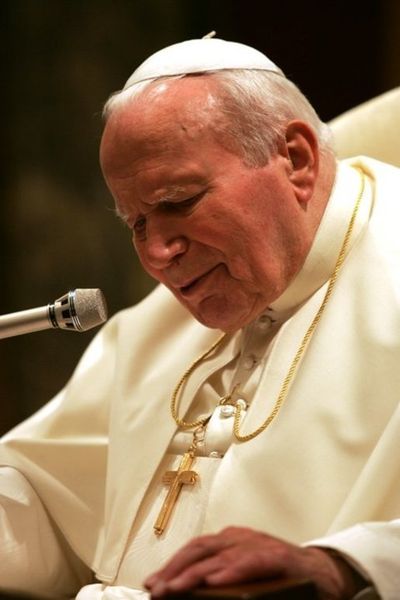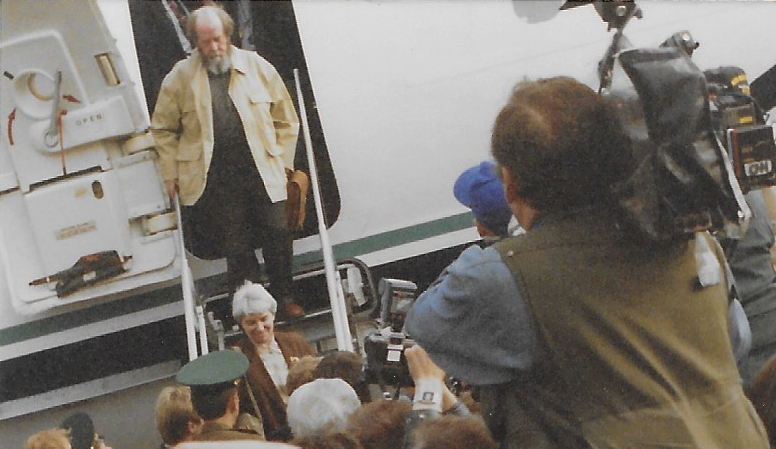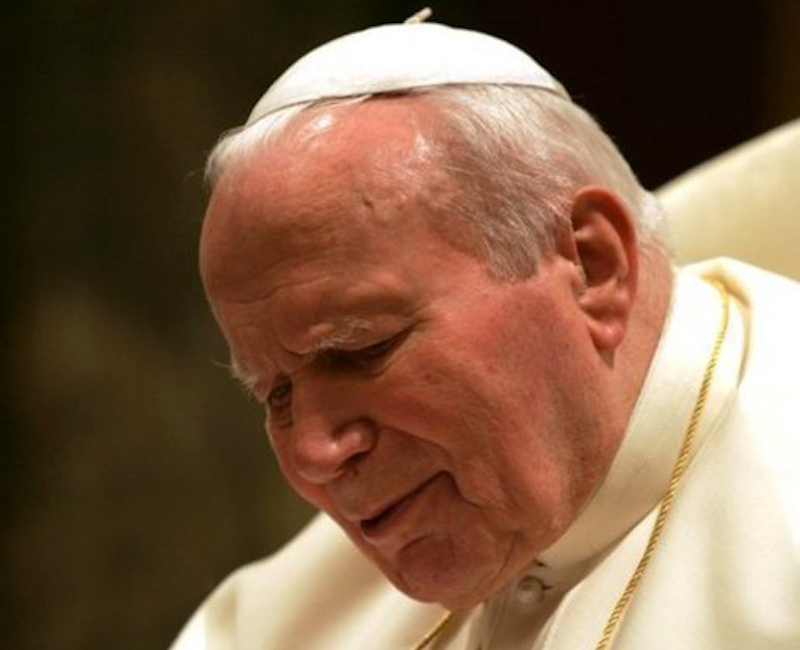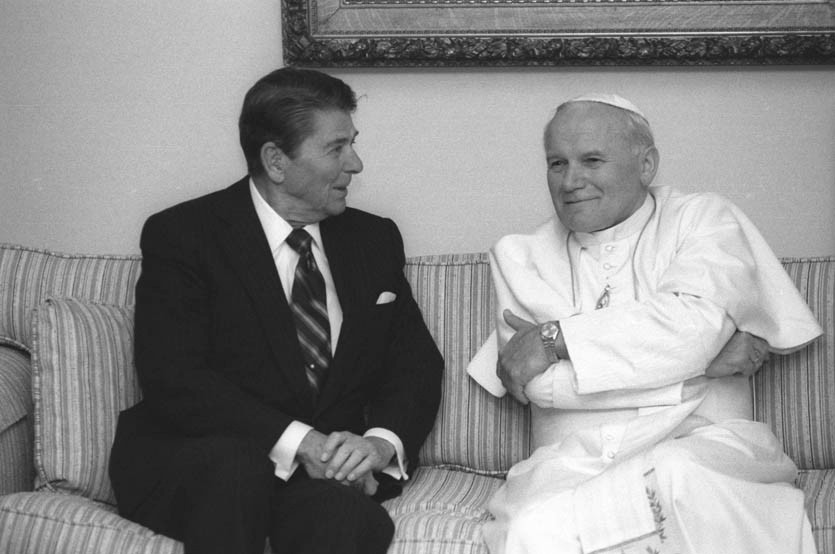 Cold War Radio Museum
Cold War Radio Museum
October 16, 2016
 A radio interview with future Pope John Paul II, recorded and first broadcast by the Voice of America (VOA) in 1976, was rebroadcast by VOA’s Polish Service on October 16, 1978, shortly after the news of Cardinal Karol Wojtyła’s election as new Roman Catholic pope had been announced at the Vatican.
A radio interview with future Pope John Paul II, recorded and first broadcast by the Voice of America (VOA) in 1976, was rebroadcast by VOA’s Polish Service on October 16, 1978, shortly after the news of Cardinal Karol Wojtyła’s election as new Roman Catholic pope had been announced at the Vatican.
On the anniversary of the election of Kraków’s Archbishop as Pope John Paul II, Cold War Radio Museum is posting the audio of the VOA interview. The conversation is in Polish. An English transcript of the opening segment is included below the audio player.
Former VOA Polish Service announcer, producer and artist Roma Starczewska Murray is credited with saving the 1976 recording and putting it on the air in VOA Polish Service evening broadcasts on October 16, 1978, the day of John Paul II’s election.
VOA broadcaster and future VOA Polish Service director Tadeusz Lipień (Ted Lipien) had conducted the interview with Cardinal Karol Wojtyła in the summer of 1976 in Washington D.C. at the American University campus where Krakow’s archbishop was staying at a guest house. Wojtyła’s long-time personal secretary and future Archbishop of Kraków Stanisław Dziwisz had traveled with him to the United States and was present during the interview. Cardinal Wojtyła visited Washington after attending the 1976 Eucharistic Congress in Philadelphia where he met Dr. Zbigniew Brzezinski who later became President Jimmy Carter’s National Security Advisor from 1977 to 1981.
The Polish archbishop took some political risk in agreeing to talk to the Voice of America during his 1976 U.S. visit. The communist regime in Poland objected to VOA Polish broadcasts, but not as much as it objected to Polish broadcasts by Munich-based, U.S.-funded Radio Free Europe – RFE (Radio Wolna Europa – RWE).
The VOA interview was not overly political, but Cardinal Wojtyła spoke about the universal human need for liberty and truth. While it was a powerful statement for anyone listening in Poland, that was as much as Cardinal Wojtyła could say publicly to VOA without getting in trouble with the communist authorities after his return to his native country. For the same reason, there was no meeting during his visit to Washington with U.S. President Gerald Ford.
An interview with the Voice of America was a risk he was willing to accept to show his support for free speech and democracy. During the Cold War, Cardinal Wojtyła was communicating secretly with Radio Free Europe and provided RFE Polish Service director Jan Nowak Jeziorański with information about the Catholic Church in Poland. RFE had more airtime, more hard-hitting programs and a much larger audience in Poland in the 1970s than the Voice of America.
John Paul II made his first visit to Poland as pope in 1979. It was covered extensively but remotely by RFE and VOA thanks to radio feeds provided by Vatican Radio. Neither VOA nor RFE was allowed by the Polish communist regime to send a correspondent to Poland. Both stations, however, had live coverage from some of the major events of the pope’s 1979 visit to the United States.
In 1980, after a series of workers’ strikes, the Solidarity (Solidarność) labor union movement was formed under the leadership of Lech Wałęsa. In December 1981, the communist regime of General Wojciech Jaruzelski imposed martial law in an ultimately unsuccessful attempt to crush Solidarity and its peaceful human rights movement.
Throughout the 1980s, Solidarity activists and the general population relied heavily for uncensored news, information and opinions on Radio Free Europe, Voice of America, BBC and other Western media sources, in addition to maintaining their own extensive underground information network.
In slightly more than ten years after Karol Wojtyła’s election as pope, Poland shook off Soviet domination and the country regained its independence.
Photo: Pope John Paul II speaks after he was honored with the Medal of Freedom in June 2004, presented during his audience for President George W. Bush and Laura Bush. Papież Jan Paweł II przemawia podczas uhoronowania go Medalem Wolności w czerwcu 2004, wydarzenie ma miejsce podczas audiencji prezydenta USA Georga Busha i Laury Bush. Author: Eric Draper.
Listen to excerpt (in Polish) of 1976 Voice of America (VOA ) interview with Cardinal Karol Wojtyla. Ted Lipien talked with future Pope John Paul II in Washington, DC.



